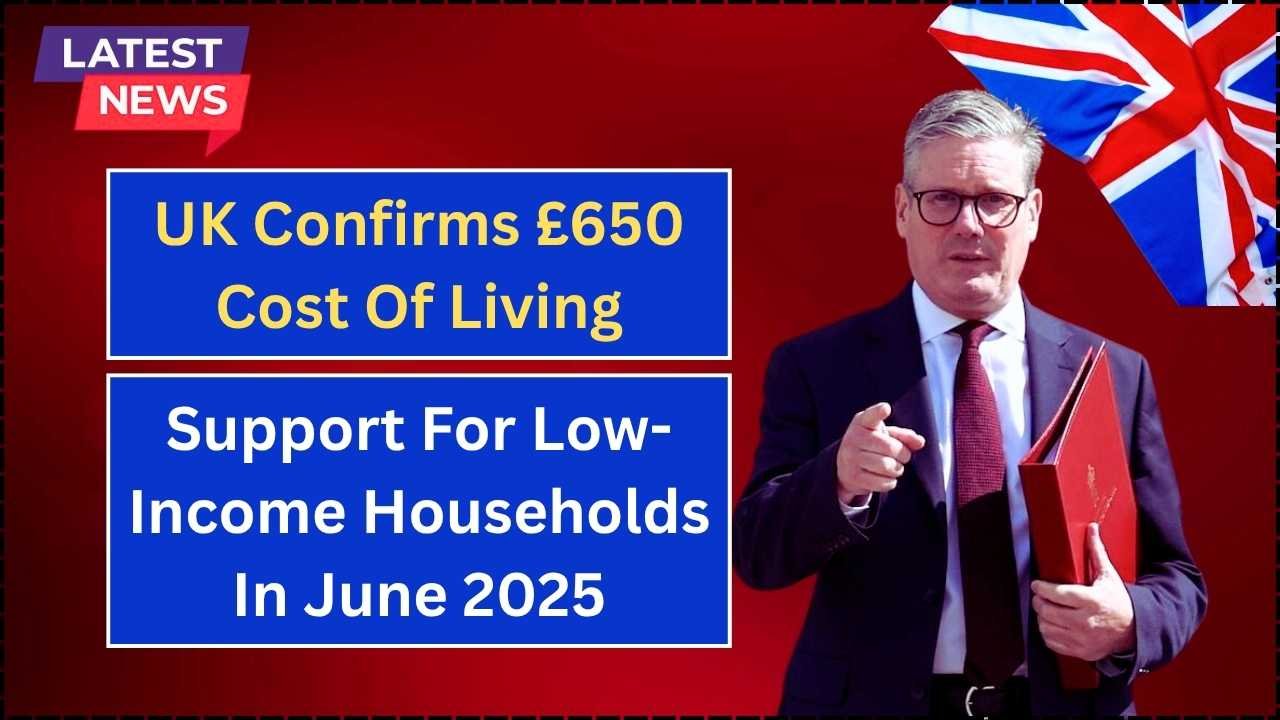The UK government has announced a £650 cost of living payment to help struggling households cope with rising prices. Set for June 2025, this one-off payment aims to ease the pressure of high energy, food, and housing costs. Managed by the Department for Work and Pensions (DWP), it targets low-income families and benefit claimants. With inflation still biting, this support is a lifeline for millions. Here’s what you need to know about who qualifies and when the money will arrive.
Who Can Get the Payment
To receive the £650, you must be claiming specific benefits between 1 March and 31 May 2025. Eligible benefits include Universal Credit, Income Support, Pension Credit, and income-based Jobseeker’s Allowance or Employment and Support Allowance. If you’re on Child or Working Tax Credits, you might also qualify, but only if you meet income rules. People on non-means-tested benefits, like State Pension or Disability Living Allowance, won’t get this payment. Only one payment is made per household, even if multiple people claim benefits.
| £650 Cost of Living Payment Details | Description |
|---|---|
| Eligibility | Means-tested benefits (e.g., Universal Credit, Pension Credit) between 1 March and 31 May 2025 |
| Payment Amount | £650 per household |
| Estimated Recipients | Over 7 million households |
| Payment Dates | 15 June to 30 June 2025 |
When and How You’ll Get Paid
Payments will start on 15 June 2025 and should reach all eligible households by 30 June 2025. The money goes straight into the bank account used for your benefits, labelled as “DWP COLP” with your National Insurance number. No application is needed; it’s automatic if you qualify. If you don’t see the payment by late June, check your benefit status and contact the DWP or HMRC with your National Insurance number ready.
Why This Help Matters
With food and energy bills still high, many families are struggling to make ends meet. The £650 payment is part of the government’s plan to support those hit hardest by inflation. It’s non-taxable and won’t affect your existing benefits, giving you extra cash for essentials like groceries or heating. Local councils have also reported less demand for emergency food and loans since similar payments began, showing they make a real difference.
Other Support Available
The £650 payment isn’t the only help out there. The Household Support Fund, extended until March 2026, offers extra aid through local councils, like food vouchers or energy bill help. Amounts and rules vary by area, so check your council’s website for details. Some councils give up to £500 for families with children or carers. Keep your benefit details updated to avoid missing out on this or future support.
What to Watch For
While the payment is automatic, some worry it won’t reach everyone who needs it. If your benefit claim starts or is backdated to the qualifying period, you might still get the money, but delays can happen. Critics also say £650 is a short-term fix and doesn’t solve bigger issues like low wages or high rents. Still, for many, this cash will provide welcome relief. Check your bank account in June and contact the DWP if there’s an issue.



